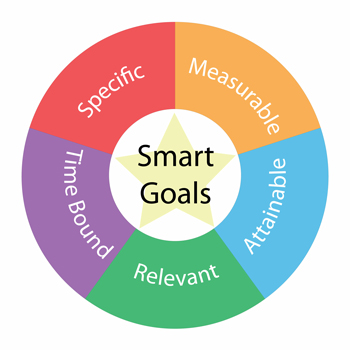New Years Resolutions
Posted Monday, Jan 8, 2024 by . Filed under General
Psychology-Backed Tips for success in 2024
As we embark on a new year, the tradition of setting New Year's resolutions is in full swing. However, the journey from resolution to realization is often riddled with challenges. So, for those of you truly ready to achieve your goals in 2024, we've compiled the following evidence-based tips:
Utilize the SMART Criteria
Apply the SMART criteria, making your resolution;
- Specific
- Measurable
- Achievable
- Relevant &
- Time-Bound.
This framework provides a clear roadmap, making it easier to track progress and stay committed.
Set Realistic Goals
Psychologically, setting achievable tasks enhances motivation. Research shows breaking your goal into smaller, more manageable tasks fosters a sense of accomplishment and allows you to celebrate progress.
This positive reinforcement can help you stick to your resolution.

Harness the Power of Habits
Behavioural psychology emphasizes the significance of habits in achieving long-term success.
Focus on creating positive habits/daily rituals that align with your resolutions. Consistency over time transforms these habits into automatic behaviours.
Visualize Success
Utilize the power of visualization. Imagine yourself successfully achieving your goals. This mental rehearsal can enhance motivation, build confidence, and create a positive growth mindset. All essential elements for lasting change.

Learn from Setbacks
Setbacks are a natural part of any change process. Instead of viewing them as failures, see setbacks as opportunities to learn and adjust your approach.
Evidence shows that adaptability is key to long-term success, so don’t be afraid to use that red pen on your SMART goal.
Accountability Matters
Share your resolutions with a significant other or a supportive community. The social pressure and encouragement from others can significantly increase your likelihood of sticking to your behaviour change.
Research shows this is most effective where the accountability is supportive, so choose someone who will pump you up in the face of those inevitable setbacks and challenges.

Incorporate Intrinsic Motivation
Focus on the internal reasons driving your resolutions. Intrinsic motivation, stemming from personal values and passions, is more sustainable than external factors. Understanding your "why" can fuel your commitment.
Practice Self-Compassion
Research in positive psychology underlines the importance of self-compassion. Be kind to yourself, acknowledge the effort you're putting in, and understand that perfection is not the goal. Treat yourself with the same kindness and patience you would offer a friend.

Utilize Behavioural Triggers
Leverage environmental cues to prompt positive behaviours. Whether it's placing workout gear by the bed, leaving your running shoes in easy view, or putting healthy snacks within easy reach.
Setting up your environment for success can give you the reminder you need, reinforcing your commitment.
Celebrate Milestones
Recognize and celebrate your achievements along the way. Positive reinforcement triggers the brain's reward system, encouraging the behaviour and making it more likely to be repeated.

By incorporating these evidence-based, psychology-backed tips into your approach, you can enhance your chances of not only setting, but also achieving your New Year's resolutions in 2024. Remember, the journey to self-improvement is a marathon, not a sprint—embrace the process and celebrate each step forward.
Happy New Year!!
References:
- https://psycnet.apa.org/record/2019-00998-001
- https://elonkline.com/wp-content/uploads/2020/11/Habits-for-Successful-college-students.pdf
- https://www.jmir.org/2011/1/e30/
- https://www.jmir.org/2020/7/e17967/
- Fredrickson, B. L., & Cohn, M. A. (2008). Positive emotions. Handbook of emotions, 3, 777-796.
- https://journals.sagepub.com/doi/abs/10.1177/1745691618804166
- https://www.annualreviews.org/doi/pdf/10.1146/annurev-psych-032420-031047
- https://www.scirp.org/html/2-2120298_41885.htm
